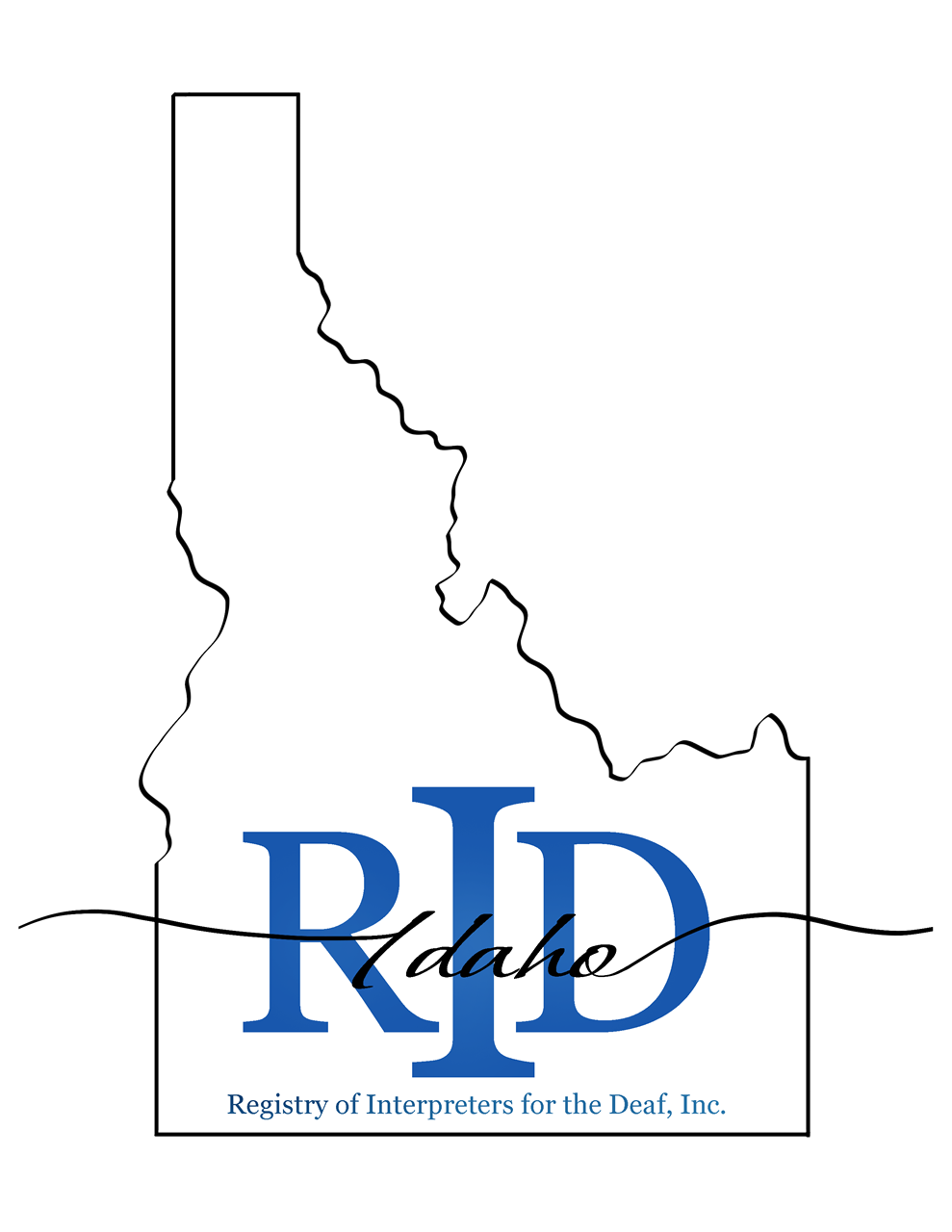- Home
- Interpreting In Idaho
- Become an Interpreter
Sign Language Interpreters are trained professionals with credentials, continuing education requirements, and an ethical code. Most interpreters begin with an Interpreter Training Program (ITP) where they learn linguistic complexities, how to maintain impartiality, as well as ethical considerations. Refer to RID's standard practice paper for more on the framework of Professional Sign Language Interpreters. |


Have at least 2 years experience using American Sign Language (ASL). This could mean taking ASL classes, community exposure, or heritage users of sign language. Successful interpreters begin by creating a strong language foundation through studying ASL and integration into the Deaf community.
- College of Southern Idaho - 2 semesters of American Sign Language
- College of Western Idaho - Associate's degree in Sign Language Studies (meets all ITP pre-requirements)
- Boise State University - Minor in American Sign Language (6 semesters)
- Idaho State University - Associate's degree in Sign Language Studies (meets all ITP pre-requirements)

Receive your Bachelor's degree. Build on your foundation of ASL by developing interpreting skills through an ITP. While a degree can be pursued in any field, an ITP will include linguistic and cultural skills, in addition to ethical fitness development.
- Idaho State University's Sign Language Interpreting Program - Bachelor's of Science degree.
Idaho's only ITP is offered at the junior- and senior-level. Generally, students are expected to have a minimum of two years' experience using ASL and taking college courses. Students who have learned ASL through community exposure, heritage users of sign language, Codas, and Deaf interpreters are encouraged to apply. As a part of the training program, interpreters participate in practicum experiences, gradually taking different types of work that fit their skill set and competence. Interpreters prove their qualifications through a variety of credentialing assessments.

In Idaho, interpreting is a licensed profession for most settings. You can become a licensed interpreter while working towards your national certification. Credentials are used to qualify for the Idaho interpreting license. See Interpreting Laws for license qualifications.

The National Interpreter Certification (NIC) is the most recognized credential for sign language interpreters and should be the goal. Candidates must be 18+ years old and have a Bachelor's degree or an approved Alternative Pathways Plan. Visit RID Certifications to learn more about the NIC or Certified Deaf Interpreter Certification.

National Interpreter Certification (NIC)
The NIC is the only National Certification. It is offered by the Registry of Interpreters for the Deaf and managed through the Center for the Assessment of Sign Language Interpretation (CASLI). There are proctor locations throughout the US including Boise, Idaho.
- The Idaho Council for the Deaf and Hard of Hearing is a proctor location for the CASLI Performance Exams.
- Candidates are welcome to check out the room, get familiar with the space, and even book the room for VRI work, office work, or testing practice.
State-level Certifications
Several states offer state-level certifications including Texas' Board for Evaluation of Interpreters Certification Program (BEI) and Utah's Interpreter Certification (UIP). State-level certifications may be accepted by multiple other states.
Assessments - While the Educational Interpreter Performance Assessment (EIPA) is not a certification, it can be a credential if the score is within a certain range. An EIPA score of 4.0+ along with a written assessment may qualify for Idaho licensure.
Do No Harm Interpreters can have major impact in the lives of the people for whom they interpret. Here are a few case studies of organizations that used individuals who were not trained or credentialed interpreters. These cases are for educational purposes and not to be used against the individuals mentioned. Case Study of Murder Investigation Interpreter Case Study of Tampa Press Release Interpreter Case Study of NAD Letter to Seattle Men's Chorus Case Study of Supreme Court Ruling on School Interpreter Case Study of Denver Unqualified Interpreters Case Study of Dallas County Unqualified Interpreters |


.png)
